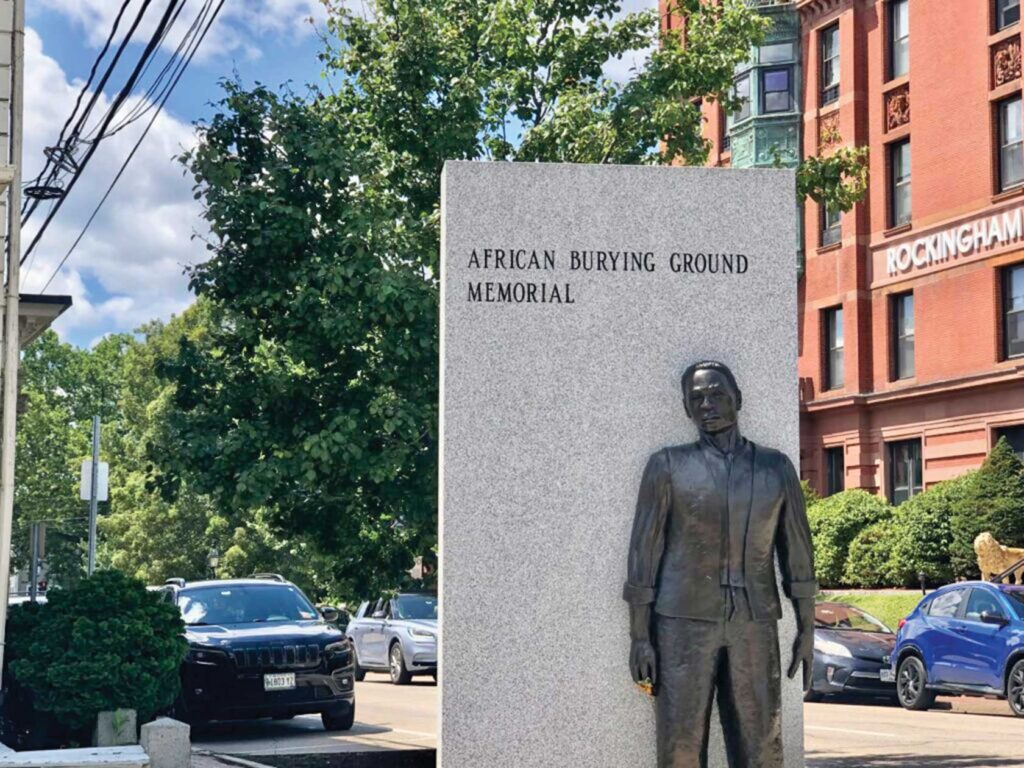New Hampshire law protects African American burial grounds discovered in state
Formal process requires consulting with descendants

If and when future African American burial grounds are uncovered in New Hampshire, a new state law now explicitly outlines how their discovery should be handled.
Senate Bill 11, signed into law earlier this month by Governor Chris Sununu, requires that descendants or the descendant community be consulted prior to the excavation or exploration of African American burial grounds. Because finding direct ancestors can be difficult, the term “descendant community” typically refers to people who have ancestral, racial or cultural ties to the burials in question.
The bill’s prime sponsor, Senator David Watters, a Dover Democrat, testified this past legislative session his goal was to ensure the state recognize and protect the historical burial sites of African Americans and that procedures be established for consulting with possible descendants.
In recent decades, the graves of African Americans who resided in New Hampshire during the period of enslavement and after have been discovered around the state, in communities such as Portsmouth, Deerfield, Milford, Amherst, Hancock, Hanover, Concord, Warner and Canterbury.

The African Burying Ground memorial in downtown Portsmouth, New Hampshire. PHOTO: HADLEY BARNDOLLAR, NEW HAMPSHIRE BULLETIN
In 2003, the buried remains of 13 people were uncovered during a downtown infrastructure project in Portsmouth. Thought to be from the 1700s, eight burials were exhumed, and all were determined to be of African ancestry. A 1705 city map showed the area as a “Negro burying ground.”
In 2015, the city of Portsmouth debuted a formal memorial at the site, which is thought to have nearly 200 burials.
“This is a story throughout New Hampshire,” Watters told lawmakers this year.
The new state law outlines exactly what should take place if new burials are discovered. If a professional archaeologist determines discovered remains are likely from an African American burial ground, the state archaeologist must immediately notify and consult with descendants or the descendant community, whether in or outside of New Hampshire.
Within four weeks of notification, the appropriate group or African American community must communicate in writing to the state “its concerns with regard to the treatment of interment and ultimate disposition” of the remains.
From there, the parties must come to a written agreement addressing the following:
• Designation of a qualified skeletal analyst to work on the remains
• Type and length of analysis
• Timetable for written progress reports and final report
• A plan for ultimate disposition of the remains when analysis is completed
If the parties agree the remains should be reinterred, the descendant community “may provide a suitable reburial location and reburial ceremony,” the law reads.
The bill also sought to address concerns around the unjust removal of artifacts or disturbance of burial sites, by requiring that “markers, gates, mortuary materials or other archaeological materials found in an African American burial ground” be discussed with descendants or the descendant community prior to ultimate disposition.
Testifying in support of the bill this year was Rekha Mahadevan, vice president of the Seacoast NAACP Youth Council and tour guide at the Black Heritage Trail of New Hampshire. She told lawmakers about the “completely forgotten and neglected” graves of an African American family in her hometown of Madbury.
Three or four stone markers on private farmland are likely to be the burial sites of the Hall family, a free Black family that succumbed to an illness in 1868.
“Madbury has numerous other cemeteries kept in pristine condition and yet for some reason, this one was left behind,” Mahadevan said.
Last year, a similar effort to protect and preserve African American graves was defeated in the House and sent to interim study. That bill had named the Black Heritage Trail of New Hampshire as a “designated representative” of the African American descendant community, since finding direct descendants can be challenging.
Members of the House Committee on Resources, Recreation and Development took issue with a private nonprofit representing the interests of the descendant community. This year’s reintroduced legislation included broader language, rather than specifying a particular entity.
Hadley Barndollar covers climate, energy, environment and the opioid crisis for the New Hampshire Bulletin, an independent, nonprofit news organization.






